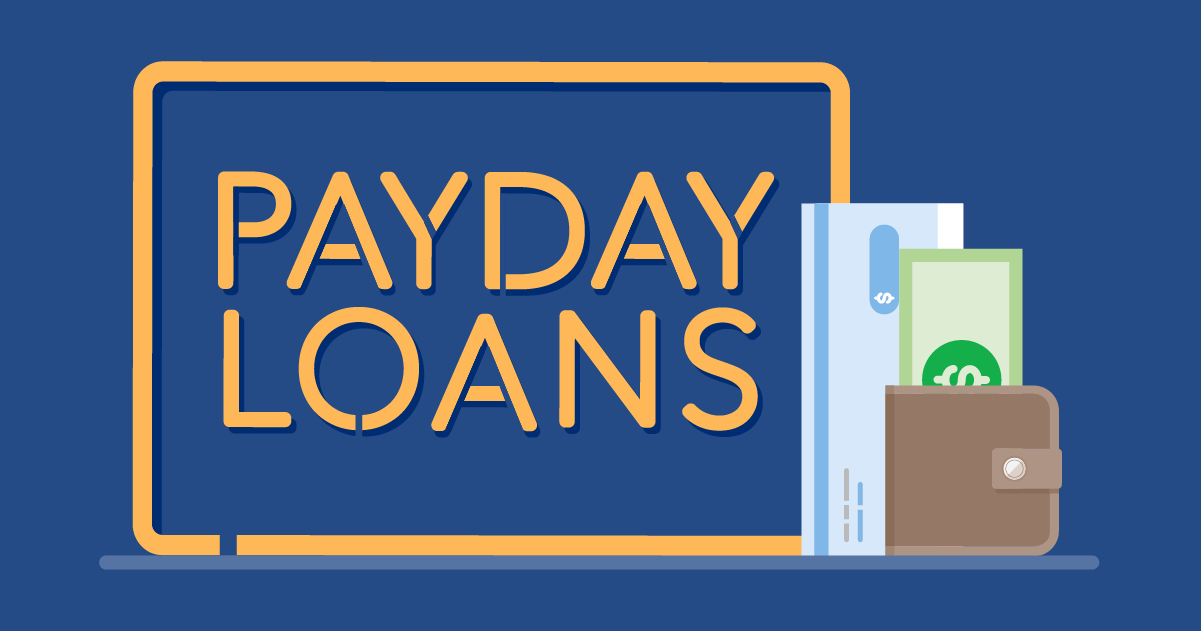Comparing Installment Loans and Cash Loans for better financial planning
Wiki Article
A Comprehensive Guide to Home Loans: Solutions and Options Explained
Charting the globe of home loans can be complex. Numerous alternatives exist, each with special attributes and ramifications for possible homeowners. Understanding the differences in between government-backed and traditional fundings is crucial. In addition, the application procedure entails careful documents and pre-approval actions that many neglect. As borrowers start on their home-buying trip, understanding how to handle these responsibilities successfully can mean the difference in between economic security and hardship. What methods can empower them on this path?Recognizing Home Loans: Kinds and Terms
Comprehending the numerous kinds of home fundings and their connected terminology is necessary for possible house owners, as it furnishes them with the expertise required to make informed economic choices. Home loans can be broadly classified into adjustable-rate and fixed-rate home mortgages. Fixed-rate mortgages maintain a regular rates of interest over the life of the financing, giving security in month-to-month settlements. Installment Loans. Conversely, variable-rate mortgages include rate of interest that might rise and fall after a first fixed duration, possibly resulting in lower preliminary settlements yet boosted future expensesAdded terms is essential for clearness. Principal refers to the finance quantity obtained, while passion is the expense of loaning that quantity. The regard to the financing suggests its duration, usually ranging from 15 to three decades. Comprehending these basic principles allows prospective buyers to navigate the complicated landscape of home financing, ensuring they pick the right funding alternative that aligns with their monetary situation and lasting objectives.
Traditional Fundings vs. Government-Backed Loans
A significant distinction in home funding exists in between standard lendings and government-backed financings, each accommodating various borrower demands and circumstances. Traditional finances are not guaranteed or assured by the government and usually call for greater credit report and deposits. They are usually attracting consumers with stable monetary histories, as they might offer affordable rate of interest and terms.On the other hand, government-backed lendings, such as FHA, VA, and USDA financings, are created to aid specific groups of debtors, including first-time homebuyers and experts. Cash Advance. These fundings normally include lower down payment demands and more adaptable credit scores standards, making them available to a broader series of individuals
Inevitably, the choice between government-backed and standard fundings hinges on the debtor's financial situation, long-lasting objectives, and eligibility, making it vital to carefully review both choices prior to deciding.

The Role of Rate Of Interest Prices in Home Funding
Rates of interest play a crucial duty in home funding, affecting customers' choices between set and variable price finances. The option between these alternatives can greatly influence month-to-month payments, impacting general price. Comprehending just how rate of interest rates operate is crucial for any person navigating via the mortgage procedure.Taken Care Of vs. Variable Prices
Homebuyers deal with an essential choice when selecting in between taken care of and variable prices, as this choice significantly impacts the expense of financing in time. Fixed-rate mortgages offer security, locking in a passion price for the life of the financing, which can be advantageous in a climbing rates of interest setting. This predictability allows house owners to budget better. On the other hand, variable-rate home loans, or adjustable-rate home loans (ARMs), generally start with reduced preliminary prices that can vary based upon market problems. While this might bring about reduced initial payments, debtors face the danger of enhanced prices in the future. Eventually, the option in between variable and set rates depends upon specific economic circumstances, risk resistance, and assumptions pertaining to future rate of interest patterns.Influence on Regular Monthly Settlements
When assessing home financing choices, the effect of rate of interest on monthly payments is a key aspect to consider. Rates of interest directly influence the overall price of loaning, influencing how much a consumer will pay each month. A lower rate of interest lead to smaller monthly settlements, making homeownership a lot more cost effective. Alternatively, higher rates can greatly enhance monthly commitments, potentially stressing a property owner's budget. Furthermore, the funding term plays an important duty; longer terms may spread out repayments out yet can cause paying more rate of interest over time. Recognizing how passion rates communicate with financing quantities and terms is essential for debtors to make informed economic decisions and select a home mortgage that straightens with their lasting financial goals.Home Mortgage Brokers vs. Direct Lenders: Which Is Right for You?
When taking into consideration a home mortgage, possible customers should understand the unique roles and obligations of home mortgage brokers and direct lending institutions. Each alternative provides its very own benefits and negative aspects, which can significantly influence the overall expense of financing. An educated choice requires mindful evaluation of these aspects to identify the most effective fit for specific requirements.Functions and Duties Specified
Steering the intricacies of home financing calls for a clear understanding of the duties and duties of mortgage brokers and straight loan providers. Home loan brokers work as intermediaries, connecting debtors with lending institutions. They analyze a borrower's economic circumstance, curate lending options, and guide clients via the application process, typically leveraging several lending institution partnerships to secure favorable terms. Conversely, direct lenders, such as banks and cooperative credit union, offer fundings directly to consumers. They deal with the whole funding process, from application to funding, with a concentrate on their own products. Each alternative offers distinct opportunities for obtaining financing, making it important for borrowers to evaluate their choices and requirements when making a decision between engaging a mortgage broker or collaborating with a direct lending institution.Pros and Disadvantages Contrast
Choosing in between browse around here a home mortgage broker and a straight lending institution can substantially impact the home funding experience, as each option provides one-of-a-kind benefits and drawbacks. visit site Home mortgage brokers work as intermediaries, supplying accessibility to numerous lending institutions and possibly far better prices, while simplifying the car loan procedure. They may charge fees and rely on payment structures that might affect their referrals. On the various other hand, direct lenders simplify the procedure by using internal finances, which can cause much faster authorizations and less difficulties. Conversely, they might have a restricted choice of products and much less adaptability pertaining to rates. Inevitably, the decision pivots on specific choices, economic circumstances, and the wanted level of assistance throughout the home mortgage journey.Expense Effects Examined
While assessing the price effects of home mortgage brokers versus direct lending institutions, prospective house owners must consider various factors that can considerably affect their general expenses. Home mortgage brokers usually charge fees for their solutions, which can vary significantly, influencing the overall financing expense. Nonetheless, they commonly have accessibility to a bigger variety of car loan products and affordable prices, possibly saving debtors money over time. Alternatively, direct loan providers might use an extra straightforward procedure with potentially reduced upfront costs, yet their car loan choices might be limited. It is necessary for home owners to contrast rate of interest, costs, and terms from both lending institutions and brokers, ensuring they make an enlightened choice that straightens with their financial objectives and requirements.The Home Mortgage Application Refine: What to Anticipate

The home loan application process can typically really feel frightening for numerous candidates. It typically starts with gathering needed documentation, including evidence of earnings, credit rating, and individual identification. Lenders use this information to analyze the applicant's financial stability and identify car loan qualification.
Next, news applicants submit an official application, which may entail submitting online forms or giving details face to face. During this phase, loan providers review various variables, such as debt-to-income proportion and credit report, to determine on lending terms.
When pre-approved, the loan provider will carry out a detailed appraisal of the building to identify its value aligns with the loan amount. This stage may additionally include additional history checks.

After last approvals and problems are met, the lending is processed, bring about the closing stage. Comprehending each step equips applicants, making the journey smoother and more convenient as they move toward homeownership.
Tips for Handling Your Home Lending Responsibly
Efficiently steering the mortgage application process is simply the start of an accountable economic journey. Managing a mortgage needs attention to numerous vital methods. Initially, customers should develop a clear budget that accommodates monthly home mortgage payments, real estate tax, and insurance policy. Frequently reviewing this budget plan assists avoid overspending and guarantees timely payments.In addition, making extra payments when feasible can significantly decrease the funding principal and overall interest paid with time. Customers must additionally keep open lines of interaction with their loan provider, especially in times of financial problem. This can bring about prospective remedies such as lending alterations or refinancing choices.
It is a good idea to check credit report ratings routinely. A great credit rating can offer possibilities for much better car loan terms in the future. Cash Loans. By following these suggestions, house owners can browse their funding responsibilities efficiently, ensuring lasting economic health and stability
Often Asked Inquiries
What Are Closing Costs and Just How Are They Determined?
Closing expenses incorporate costs connected with completing a home mortgage, including assessment, title insurance, and car loan source costs. These prices typically vary from 2% to 5% of the car loan amount, varying based upon area and lending institution.Can I Get Approved For a Mortgage With Bad Debt?
Yes, people with negative credit score can certify for a home mortgage, though alternatives might be limited. Lenders commonly call for greater deposits or rates of interest, and exploring government-backed car loans might enhance chances of authorization.What Is Home loan Insurance coverage and When Is It Needed?
Home mortgage insurance coverage safeguards lending institutions versus default and is typically called for when a customer makes a deposit of much less than 20%. It ensures that lending institutions recuperate losses if the borrower stops working to pay off the car loan.Just How Does Refinancing Work and When Should I Consider It?
Refinancing entails replacing a present home loan with a new one, typically to safeguard a lower rate of interest rate or change financing terms. Homeowners need to consider re-financing when rate of interest drop substantially or their monetary circumstance boosts.What Occurs if I Miss a Home Mortgage Payment?
If a mortgage repayment is missed, the loan provider typically evaluates late charges, reports the misbehavior to credit report bureaus, and may start repossession proceedings if payments remain to be disregarded, eventually jeopardizing the house owner's residential or commercial property.Fixed-rate home loans keep a regular interest rate over the life of the financing, providing security in monthly payments. A considerable difference in home funding exists between government-backed loans and conventional car loans, each catering to different debtor demands and scenarios. In comparison, government-backed loans, such as FHA, VA, and USDA fundings, are designed to aid certain groups of debtors, consisting of newbie property buyers and professionals. Passion rates play a crucial duty in home financing, affecting borrowers' decisions in between fixed and variable price financings. Fixed-rate home mortgages use stability, securing in a rate of interest price for the life of the financing, which can be advantageous in a rising rate of interest price atmosphere.
Report this wiki page